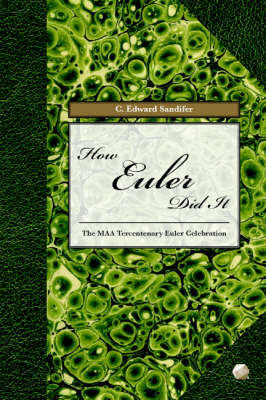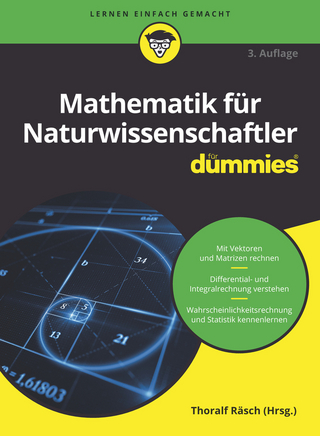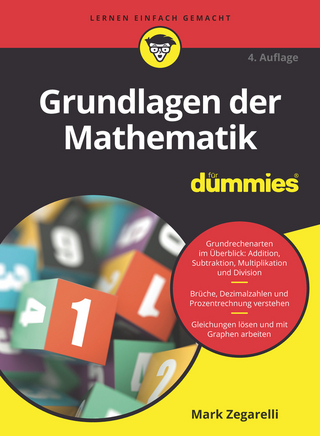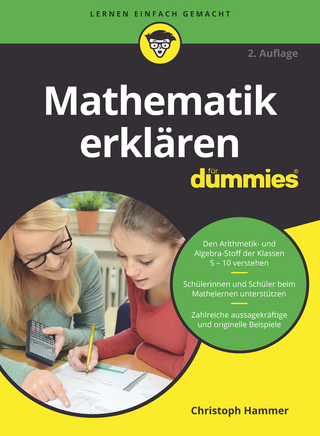
How Euler Did It
Mathematical Association of America (Verlag)
978-0-88385-563-8 (ISBN)
- Titel ist leider vergriffen;
keine Neuauflage - Artikel merken
How Euler Did It is a collection of 40 monthly columns that appeared on MAA Online between November 2003 and February 2007 about the mathematical and scientific work of the great 18th-century Swiss mathematician Leonhard Euler. Inside we find interesting stories about Euler's work in geometry and his solution to Cramer's paradox and its role in the early days of linear algebra. We see Euler's first proof of Fermat's little theorem for which he used mathematical induction, as well as his discovery of over a hundred pairs of amicable numbers, and his work on odd perfect numbers, about which little is known even today. Professor Sandifer based his columns on Euler's own words in the original language in which they were written. In this way, the author was able to uncover many details that are not found in other sources.
C. Edward Sandifer is Professor of Mathematics at Western Connecticut State University.
Introduction; 1. Euler's Greatest Hits; Part I. Geometry: 2. Part 1 (June 2004); 3. Part 2 (July 2004); 4. 19th Century Triangle Geometry (May 2006); 5. Beyond Isosceles Triangles (April 2004); 6. The Euler--Pythagoras theorem (January 2005); 7. Cramer's Paradox (August 2004); Part II. Number Theory: 8. Fermat's Little Theorem (November 2003); 9. Amicable numbers (November 2005); 10. Odd Perfect Numbers (November 2006); 11. Euler and Pell (April 2005); 12. Factors of Forms (December 2005); 13. (January 2006); Part III. Combinatorics: 14. Philip Naudés problem (October 2005); 15. Venn Diagrams (January 2004); 16. Knight's Tour (April 2006); 17. Derangements (September 2004); 18. Orthogonal Matrices (August 2006); Part IV. Analysis: 19: Piecewise Functions (January 2007); 20. Finding Logarithms by Hand (July 2005); 21. Roots by Recursion (June 2005); 22. Theorema Arithmeticum (March 2005); 23. A Mystery about the Law of Cosines (December 2004); 24. A Memorable Example of False Induction (August 2005); 25. Foundations of Calculus (September 2006); 26. Wallis's Formula (November 2004); 27. Arc Length of an Ellipse (October 2004); 28. Mixed Partial Derivatives (May 2004); 29. Goldbach's Series (February 2005); 30. Bernoulli Numbers (September 2005); 31. Divergent Series (June 2006); 32. Who Proved e is Irrational? (February 2006); 33. Infinitely Many Primes (March 2006); 34. Formal Sums and Products (July 2006); 35. Estimating the Basel Problem (December, 2003); 36. Basel Problem with Integrals (March 2004); 7. Cannonball Curves (December 2006); 38. Propulsion of Ships (February 2004); 39. How Euler Discovered America (October 2006); 40. The Euler Society (May 2005); Index; About the author.
| Reihe/Serie | Spectrum |
|---|---|
| Zusatzinfo | Worked examples or Exercises |
| Verlagsort | Washington |
| Sprache | englisch |
| Maße | 184 x 261 mm |
| Gewicht | 602 g |
| Themenwelt | Mathematik / Informatik ► Mathematik ► Allgemeines / Lexika |
| Mathematik / Informatik ► Mathematik ► Geschichte der Mathematik | |
| ISBN-10 | 0-88385-563-1 / 0883855631 |
| ISBN-13 | 978-0-88385-563-8 / 9780883855638 |
| Zustand | Neuware |
| Haben Sie eine Frage zum Produkt? |
aus dem Bereich


